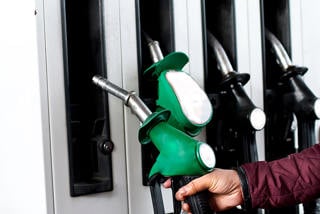By Paul Holland, managing director for UK Fuel at Fleetcor
The COVID-19 pandemic has drastically changed the way many businesses operate, with companies everywhere having to digitise in order to meet social distancing measures, ensure that employees stay connected and reach customers in new and unique ways.
And, while the core component of what fleet businesses do takes place on the road, they haven’t escaped this metamorphosis.
The truth is, fleet companies have been going digital for a long time, but the pandemic has accelerated this process.
Now, following a period of reduced operation, fleets are looking for systems they can digitise to simplify or streamline processes, allowing them to save money.
At the same time, social distancing measures will likely remain in place for a while and companies will see employees less, with managers and departments possibly working from new locations.
So, with automation and innovation helping fleet decision-makers to digitise service maintenance and repairs, run vehicles, and manage drivers under these new conditions, let’s look at the processes and solutions that are helping businesses operate in the most efficient ways.
Digitising maintenance and internal processes
There are several solutions available to fleet businesses that will help digitise internal processes, making them cost-effective.
And while we are currently facing an economic downturn, this will be at the forefront of every fleet managers mind.
Using digital administration solutions that oversee fuel, servicing and other vehicle related costs, allows fleet managers to have greater control over cost management, and any associated administration.
With such solutions, they can have access to dashboards that allow for a range of activity.
One of the most important operational processes that these solutions can help automate is scheduling and approving service, maintenance and repair work on vehicles.
By doing this remotely and from a single platform, fleet businesses can ensure that this process is done as efficiently as possible and fleet managers can rest assured that MOTs are carried out on time and vehicles are safe to be back on the road.
There are a range of dashboards similar to this that enable cost saving processes, such as receiving HMRC-compliant fuel invoices, adjusting limits on fuel cards, and reporting on spending.
Companies will also save money by digitising the VAT reclaim process.
Drivers can often lose paper receipts, or not specify which ones have VAT numbers on, which means the tax cannot be claimed.
They can also take time to put receipts through as expenses, and this can mean a delay to VAT being reclaimed.
Instead, a business can opt to use fuel cards that produce VAT-compliant digital receipts and invoices, which are exported into accounting systems, meaning that a company has a clear picture of what it is owed, and when.
Rapid solution onboarding using digital processes
As we emerge from lockdowns and fleet businesses are having to adapt to the new normal, they must be able to quickly integrate these solutions.
Using solution providers that have digital end-to-end application processes will allow for this.
Take, for example, a fleet business that is looking to implement fuel cards; solution providers that have such an application process will be able to manage on-boarding for the business and provide the means for fleet managers to get drivers up and running through entirely digital methods.
As a result, administration and on-boarding is streamlined, saving the business time and money.
Useful tools for the ‘new normal’
Over the coming months, reducing costs will be a core component of fleet businesses’ recovery plans.
As we head into the new normal, there are a number of solutions to capitalise on that enable businesses to adopt digital processes, allowing them to save money.


















Login to comment
Comments
No comments have been made yet.